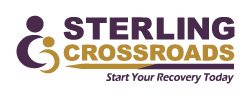Addiction is a growing public health crisis in America that takes a toll not only on the individual but also on their family and community. Residents of Kentucky are all too familiar with the effects of substance use disorders on friends, family, and loved ones. Ideally, with compassion and encouragement, you can persuade someone you care about to realize they have a problem and to seek professional addiction treatment. But things get trickier when your loved one is not receptive and flatly refuses to consider treatment, even as they continue to disrupt their own life and the lives of those around them. They may even become a danger to themselves or others, and at that point, a natural question is, “Can I make someone go to rehab?”
Sterling Crossroads in Mount Sterling, KY, can help you get help for a loved one today. Our experienced addiction treatment specialists can offer guidance on how to approach a loved one and provide information on mandatory rehab. Call Sterling Crossroads today.
What Is Mandatory Rehab?
Mandatory rehab, also known as involuntary commitment for substance abuse treatment, can occur under specific circumstances in the United States. Laws regarding mandatory rehab vary by state, but generally, an individual may be compelled to attend treatment if their substance use poses a significant danger to themselves or others. For instance, if a person is experiencing severe addiction that leads to repeated arrests, harmful behavior, or situations where they are unable to care for themselves, family members or legal authorities may petition the court to mandate treatment.
Some states, such as Kentucky, have enacted laws like Casey’s Law, which allows family or friends to request court-ordered rehab for a loved one struggling with addiction. While controversial, these laws are intended to intervene in critical situations where voluntary treatment is not an option, potentially saving lives and preventing further harm.
How Does Casey’s Law Work in Kentucky?
To use Casey’s Law in Kentucky to mandate rehab for a person, the following process is generally followed:
Filing a Petition
A family member or close friend must file a petition at the local courthouse to request court-ordered treatment for the individual struggling with addiction.
Court Review
The court reviews the petition to ensure it meets the criteria, which includes demonstrating that the individual poses a danger to themselves or others due to their substance abuse.
Evaluation
The court orders evaluations by two qualified professionals—typically a physician and a counselor or psychiatrist. These evaluations assess the severity of the individual’s addiction and determine the necessity of treatment.
Court Hearing
A hearing is scheduled, during which evidence and evaluations are presented. The individual has the opportunity to respond before the judge makes a final decision.
Mandated Treatment
If the judge approves the petition, the individual is ordered to undergo treatment at a licensed facility for a duration deemed appropriate.
There are a number of reasons why Casey’s Law might apply:
- The person’s addiction has led to life-threatening behaviors or situations.
- They exhibit an inability to care for themselves due to substance abuse.
- Their substance use poses a danger to others in their immediate environment.
- Voluntary treatment has been refused or deemed unlikely to occur without intervention.
Obviously, voluntary admittance to addiction treatment is the preferred way of seeking help. The last thing a person wants to do when dealing with a close friend or relative is ask, “Can I make someone go to rehab?”
Mandatory Rehab Should Never Be the First Option
While mandatory rehab under Casey’s Law in Kentucky can be a lifesaving measure, it should always be considered a last resort. Forcing someone into treatment can sometimes lead to resistance, resentment, and challenges in long-term recovery. Before taking such a significant step, exploring alternative methods to encourage a loved one to seek help voluntarily is essential. Building trust and promoting a willingness to change are often more effective and sustainable.
Alternatives to Mandatory Rehab
Open and Honest Communication
Start by having an open, non-judgmental conversation with your loved one about their substance use. Express your concern from a place of love and empathy rather than blame or anger. Sharing specific observations about how their addiction has impacted their life—and the lives of those around them—can help them see the reality of their situation.
Encourage Counseling or Support Groups
Sometimes, individuals struggling with addiction may feel more comfortable starting with smaller steps rather than entering treatment directly. Suggest attending a counseling session with an addiction specialist or joining support groups like Alcoholics Anonymous (AA) or Narcotics Anonymous (NA). These groups provide a space for them to connect with others who understand their struggles.
Professional Intervention
Organizing a professional intervention can be an effective way to help your loved one recognize the need for treatment. Interventionists are trained to mediate difficult conversations and guide the process in a structured way. This approach ensures the message is delivered constructively and with the support of both family and professionals.
Explore Outpatient Treatment Options
Outpatient programs can provide flexible support while allowing individuals to maintain their daily routines. This approach may serve as a more appealing entry point into recovery.
Leverage Incentives and Support
Offer positive reinforcement and incentives for taking steps toward recovery. Celebrate small milestones like attending a support meeting or speaking with a counselor. Providing emotional support, encouragement, and a safe environment can help build their confidence in taking further steps toward getting help.
Educate Yourself About Addiction
Family members and loved ones can sometimes unintentionally enable an addicted person’s behavior. Educating yourself about addiction and treatment options helps you identify patterns of enabling and better frame your interactions to encourage recovery. Organizations like Al-Anon or Nar-Anon provide resources and support networks for families navigating these challenges.
By prioritizing compassionate and supportive approaches, you foster an environment where your loved one feels safe to acknowledge their addiction and pursue help willingly.
Contact Sterling Crossroads Today for Outpatient Addiction Treatment
At Sterling Crossroads, we provide outpatient addiction treatment for a wide variety of substance use disorders. Our intensive outpatient program and medication-assisted treatment offer effective pathways toward recovery. Our support services and educational resources enhance the personalized treatment plan we develop for each patient.
Call 888.991.1476 or contact us online to learn how we can help you or a loved one find hope, healing, and recovery to restore families and communities.

